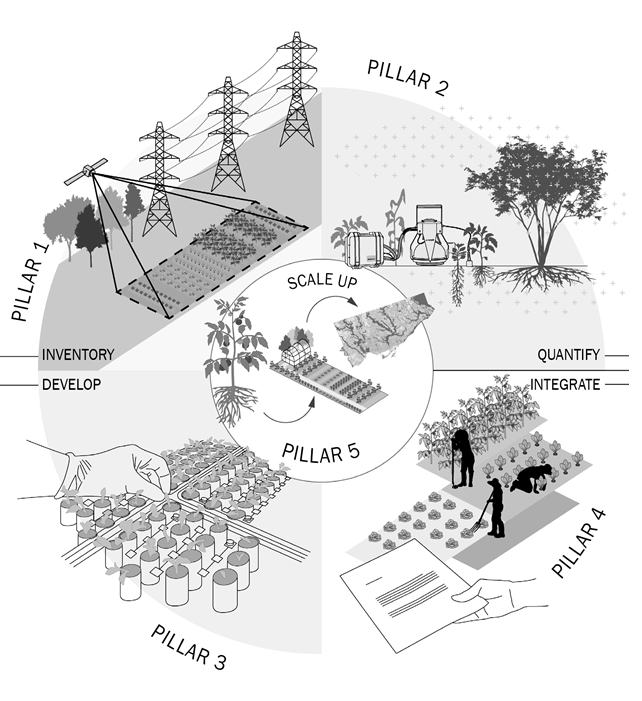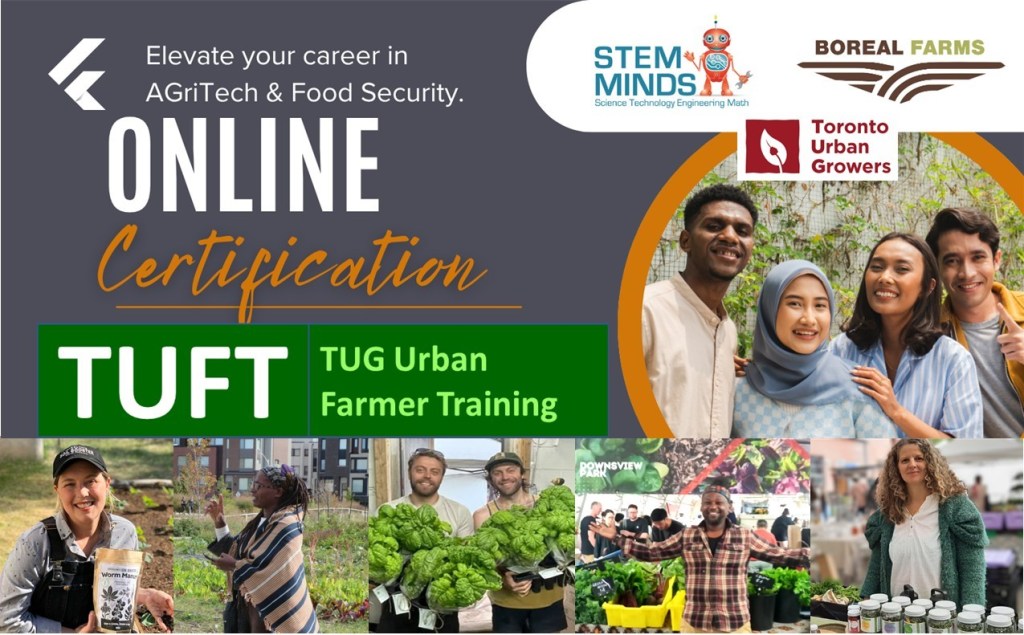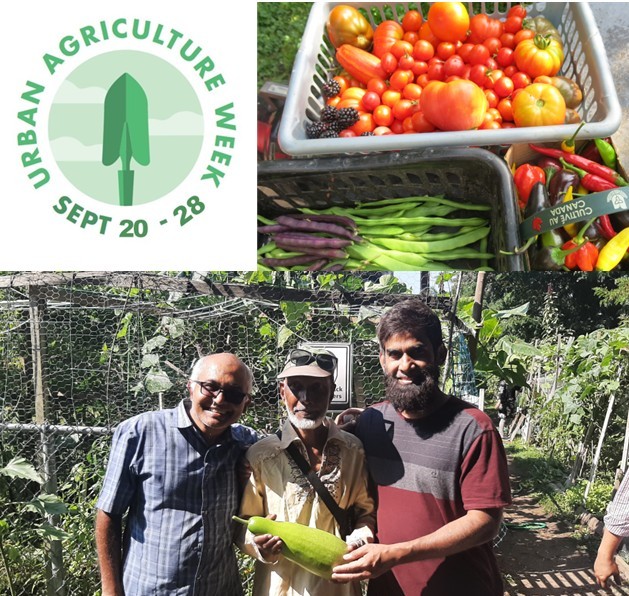Current
TUG is excited to be a partner in the “Toward Sustainable Urban and Peri-urban Agriculture for Net-zero Food Systems” (TO Sustain) research program. This four-year project aims to improve the management and expansion of sustainable UPA systems in Canada, for meeting its GHG emission targets and building resilient food systems in the GTA and Canada’s agriculture sector.
TUG is working with TO Sustain partners to make data collection on current and potential UA sites more accurate, up-to-date, and easier to obtain. We are also identifying physical, political, and socio-economic barriers to UPA growth in the GTA to inform better policies.
This interactive 12-week online program supports urban growers as they develop viable, sustainable urban agriculture enterprises and non-profit projects. Featuring case studies and talks from practicing urban farmers, participants complete the course by developing their own personal business plans or funding proposals.
Currently operated as a partnership with STEM Minds and Boreal Farms, the TUFT course draws on the agricultural and business expertise from urban farmers, researchers and instructors from Seneca Polytechnic and Toronto Metropolitan University.
Registration for the Winter 2026 session is open now! Classes begin January 13.
TUG wants to put the spotlight on urban-grown food and the people who grow it! Every year the City of Toronto declares 9 days in September as Urban Agriculture Week to celebrate the many ways that growing food in the city makes Toronto a greener and more vibrant place to live.
Want to get a taste of the diversity of urban agriculture in Toronto? See the Toronto UA Week website for upcoming events and photos of past celebrations.
Past projects
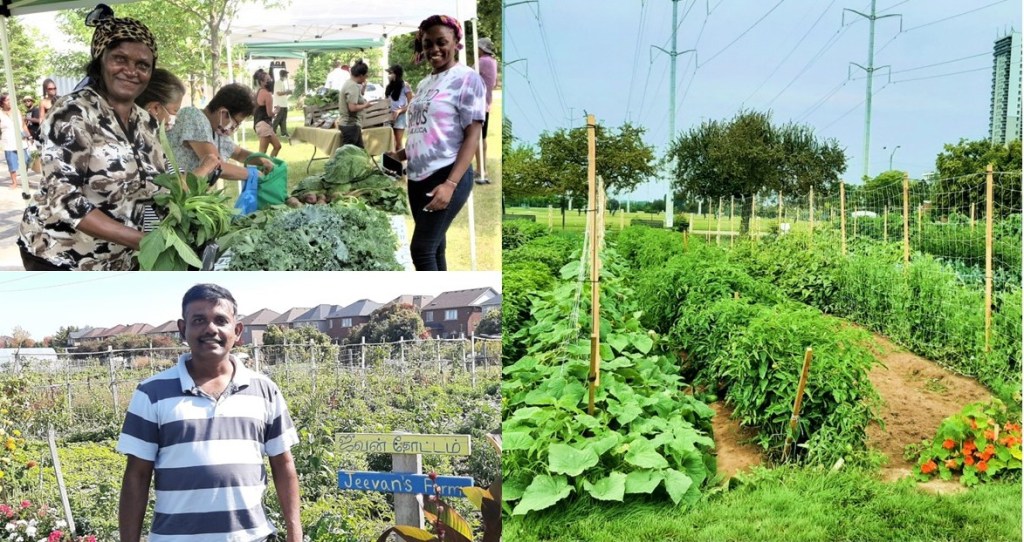
CEED Gardens in Hydro Corridors
TUG worked with the City of Toronto, Hydro One and community organizations to establish two CEED (Community Engagement and Entrepreneurial Development) Gardens in hydro utility corridors. Flemo Farm and Malvern Urban Farm are now thriving urban farms providing entrepreneurial opportunities, environmental education and fresh local produce to their communities.
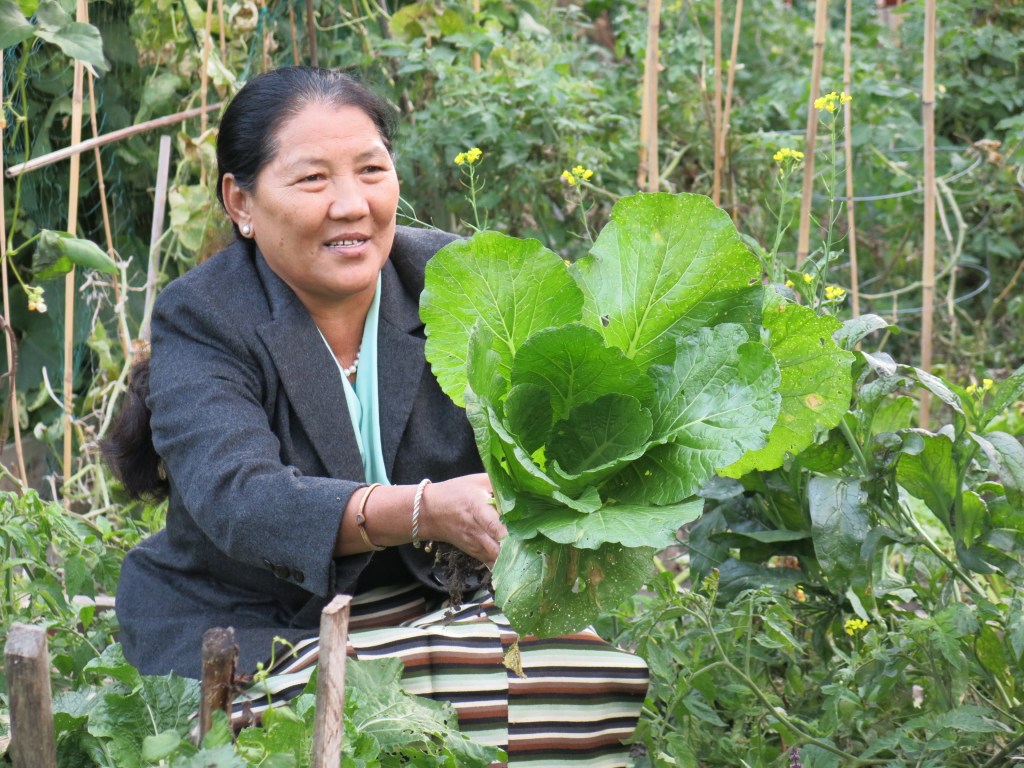
Garden Sharing
Finding space to grow food in the city can be difficult. One response is to match gardeners with landholders who have underused space. We have tools to help create successful agreements for sharing land. Forms are available in MS Word and PDF format.
Our program to support the matching process is now closed, so TUG does not actively match growers to landholders. We invite people to post to the TUG Google Group or on Grow Food Toronto, stating what part of the city you are in and a few details about what you are offering (size of the space or your growing experience). We encourage you to use the garden sharing tools!
Are you interested in starting a garden sharing program? Please see our project report for some tips on running a successful program.
Toronto has a wealth of growers who know how grow everything from okra to communities to innovative local food businesses. Many of these people, coming from a variety of backgrounds and experiences, are well-known in their own neighbourhoods but not heard elsewhere in the city. TUG hopes to change that! See our collection of photo essays and videos – and check out our YouTube channel).
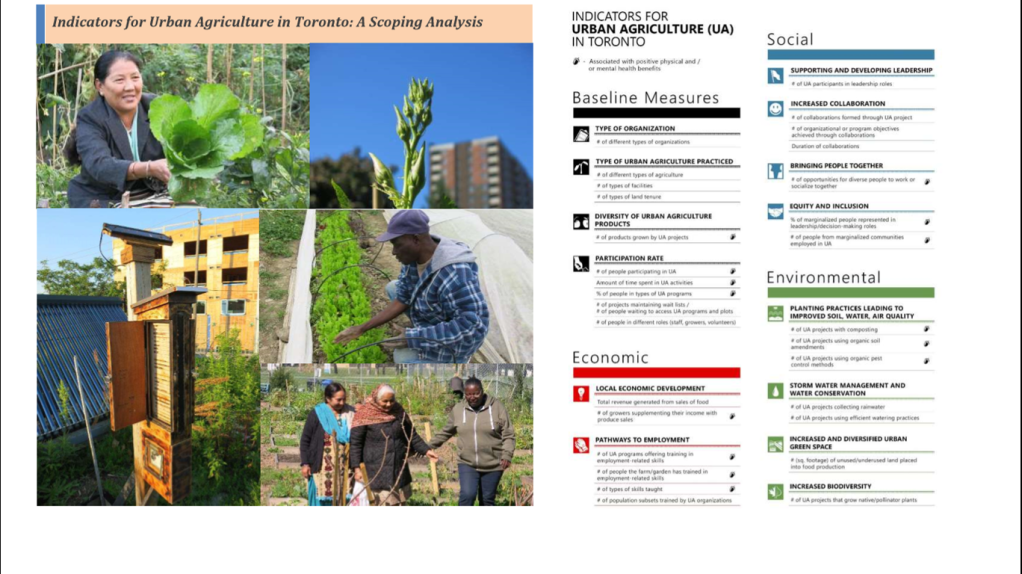
Urban Agriculture Indicators project
If we are to make a strong case for investing more resources into urban agriculture and developing enabling policies, it’s important to have reliable and compelling data that show the positive impacts UA can have.
Toronto Public Health commissioned TUG to consult with local UA practitioners on developing indicators that would measure the social, economic, health and environmental benefits of growing food in the city.
